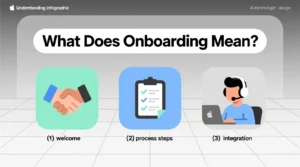You’ve probably seen it before you open an email and notice another person’s name sitting quietly in the “CC” field.
Maybe the first time you thought, “Wait… am I supposed to reply to them too? Why are they here?” Don’t worry, everyone has had that moment of email confusion!
If you’re new to professional communication or simply curious about email etiquette, understanding what CC means is essential.
Quick Answer:
CC stands for “Carbon Copy.” It’s a polite and professional way of adding someone to an email so they can stay informed, even if they’re not required to respond.
What Does “CC Someone in an Email” Mean?
CC means Carbon Copy, a term borrowed from old-school typewriters and carbon paper. In modern email use, to CC someone simply means to include them in the email for their information, not for direct action.
It’s like saying, “Hey, just keeping you in the loop.”
Example sentence:
“I’m CC’ing Sarah so she’s aware of the schedule changes.”
In short:
CC = Carbon Copy = Adding someone for awareness only.
Where Is “CC” Commonly Used?
CC is used in almost all forms of digital communication where email is involved. It’s mainly professional, but can appear in personal settings too.
👇 Common places you’ll see “CC”:
- 📧 Work Emails
- 🏢 Corporate communication
- 🧑💻 Freelance or client emails
- 🏫 School or university communication
- 🛒 Customer support emails
- 👪 Family or group updates
Tone:
CC is formal and professional, not casual or flirty. It’s used for clarity, transparency, and record-keeping.
Examples of “CC” in Conversation
Here are realistic chat-style examples showing how people use “CC” when talking about emails:
1.
A: i’ll send the report now
B: cool, cc me so i’m updated 👍
2.
A: should i forward this to mark?
B: no need, just cc him on your reply
3.
A: why did the boss cc me on this… 😭
B: lol just so you know what’s happening
4.
A: i cc’d the HR team for transparency
B: perfect, thanks!
5.
A: can you cc sara on that email?
B: sure thing
6.
A: i forgot to cc you earlier, sending again 😅
B: haha no worries!
7.
A: cc the sales team so everyone’s aligned
B: got it ✔️
When to Use and When Not to Use “CC”
✅ When to Use “CC”
- When someone needs to stay informed
- When you want transparency in communication
- When multiple teams should see the conversation
- When someone is a secondary recipient
- When you want a record or confirmation in writing
❌ When Not to Use “CC”
- When the information is private or sensitive
- When someone needs to take action (use “To” instead)
- When there are too many recipients
- When the person might get annoyed by unnecessary emails
- In casual conversations or personal messages
📊 Comparison Table
| Context | Example Phrase | Why It Works |
|---|---|---|
| Friend Chat | “i cc’d mom on the email about the tickets 😄” | Casual & informative |
| Work Chat | “Please CC the finance team on updates.” | Professional transparency |
| “I’m CC’ing HR so they’re aware of the issue.” | Clear, formal, keeps everyone updated |
🔄 H2: Similar Slang Words or Alternatives
| Term | Meaning | When to Use |
|---|---|---|
| BCC | Blind Carbon Copy | When you want others to receive the email without recipients knowing |
| To: | Main recipient | When you expect the person to take action |
| FYI | For Your Information | When sharing info that needs no reply |
| Reply All | Respond to every email recipient | When everyone in the thread needs your response |
| Forward | Send a received email to someone else | When passing on information separately |
| Loop In | Add someone to the conversation | When introducing someone into a discussion |
❓ H2: FAQs About “CC Someone in an Email”
1. Does CC mean someone must reply?
No — CC’d people usually don’t need to take action.
2. Is CC formal?
Yes — it’s used mostly in workplaces and professional messages.
3. What’s the difference between CC and BCC?
BCC hides the recipients; CC keeps everyone visible.
4. Can you CC multiple people?
Yes — as many as necessary, but keep it reasonable.
5. Should I CC my boss on everything?
Only when they need to be informed, not daily chatter.
6. Is CC good for accountability?
Absolutely — it keeps communication transparent.
7. Can I CC myself?
Yes — many people do this to keep a record.
8. Is it rude to CC someone unexpectedly?
Sometimes — especially if it feels like calling someone out.
9. Can I remove someone from CC later?
Yes, just note it in the message: “(removing John from CC).”
10. Is CC used in texting or social media?
Not really — it’s almost always email-only.

Justin Taylor is a puzzle enthusiast and connoisseur, dedicated to exploring the fascinating world of puzzles. With a knack for solving complex riddles and a deep understanding of puzzle mechanics, Justin’s contributions to Puzzlerpedia are both enlightening and entertaining, captivating readers of all skill levels.










